Thanks to her job as a teacher, photographer Eleonora Strano uncovered a country rarely seen by foreigners.
Run a Google image search of Turkmenistan and you’ll get maps, diagrams, architectural photos devoid of any humans, and a few images of women in traditional dress. That’s how little filters out of the closed-off Central Asian republic. What we do know about it—that it’s rich in oil and eccentric autocrats—is intriguing enough. But the country, named an enemy of the internet by Reporters Without Borders, rarely grants access to journalists. Thanks to her job as a French language teacher, however, photographer Eleonora Strano was able to live in Turkmenistan on and off over a period of three years. What she found there was “completely absurd and surreal,” she says. Her body of work, atmospheric in photographs that blend beauty and unease, shows the people she met there: “a very diverse mix who coexist in a closed environment.” She joined R&K from her home in the South of France.
Roads & Kingdoms: When did you first go to Turkmenistan?
Eleonora Strano: It was in the Spring of 2011. I went there to teach French as a second language. I hadn’t realized where I was going really, I just needed money so I took the first job that I happened to find, and I went. When I was there, I realized that it was the perfect opportunity for a photographer, and I did everything I could do go back again as a teacher, because it’s impossible to enter the country any other way than the official routes. I went back in 2012 and 2013 for longer periods of time. I wasn’t the only French person there though. At the time, there were a lot of people living in Turkmenistan who worked in construction companies. Bouygues Construction pretty much rebuilt the entire capital, the official buildings, the President’s palace, the former President’s mosque where his tomb is. The company has been around for a while there and so there were thousands of French expats actually. Of course, it’s not really talked about because Turkmenistan is still a dictatorship.
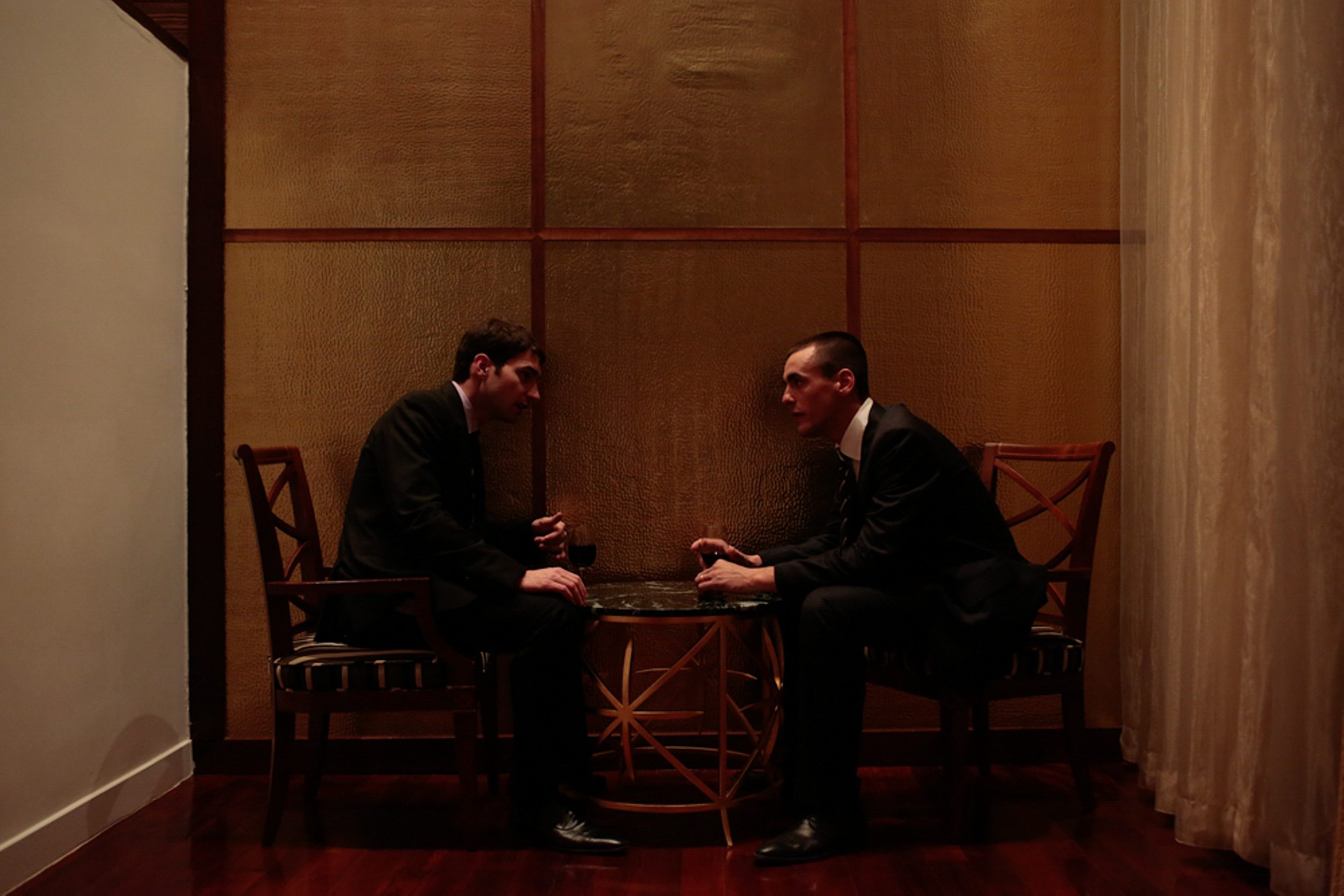
R&K: Why a French company?
Strano: When Turkmenistan became independent, it had good political ties with France. But now there are fewer and fewer people from Bouygues over there. And from what I understand, they don’t have any more projects planned in the country. Now, Turkmenistan works a lot with Turkey because it costs less money, though working conditions and quality of construction aren’t the same, which is worrying in a country where the risk of earthquakes is high. But you know, it’s politics. Turkmenistan is a closed country. They don’t like publicity and they don’t like having too many foreigners over.
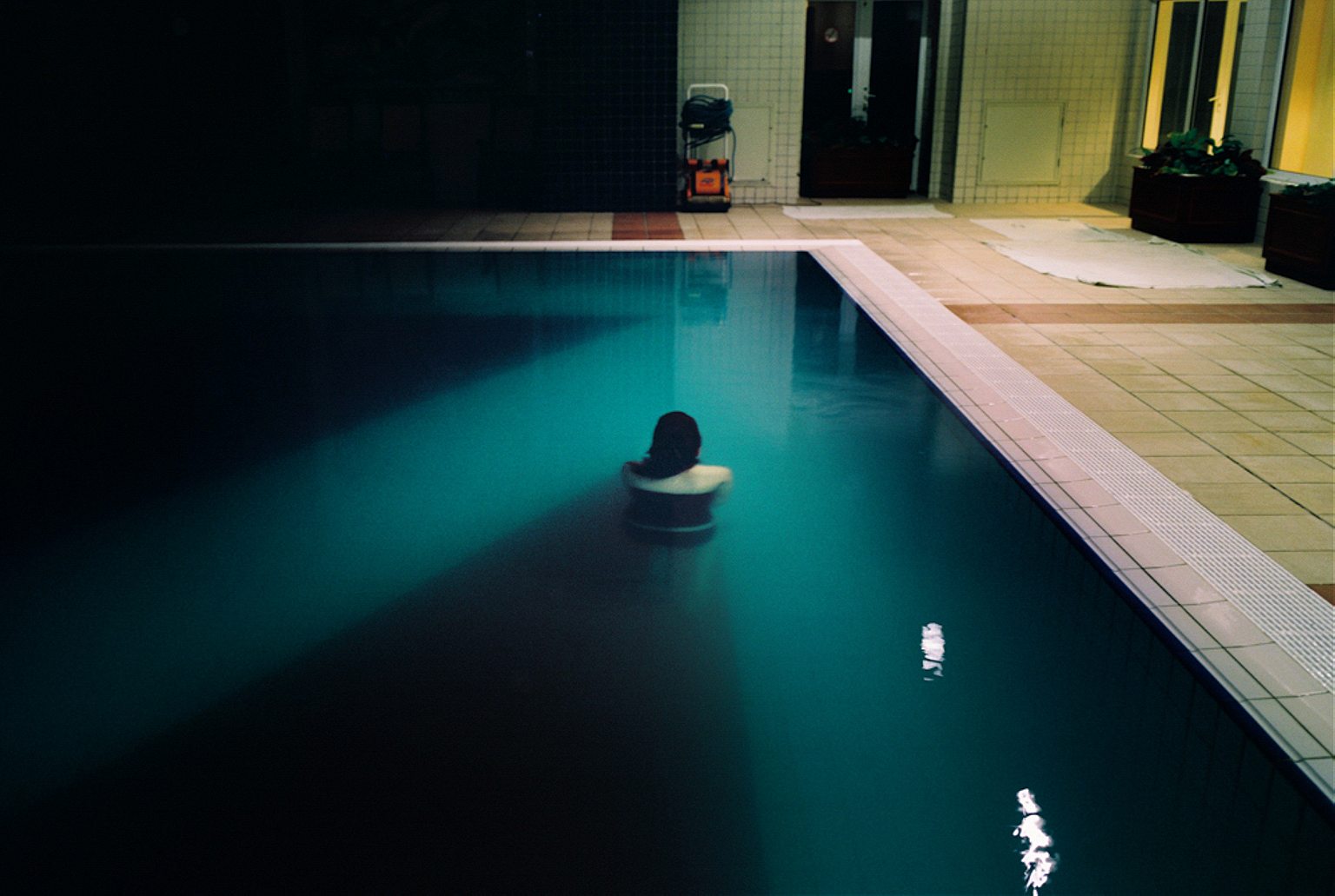
R&K: What did you expect to find there the first time you went?
Strano: I didn’t know anything about Turkmenistan and I definitely had preconceived ideas about the ‘Stans and ex-Soviet Republics. I guess I didn’t expect to like it as much as I did. I didn’t think I would develop such strong relationships with people. I was surprised by how diverse the country is. It’s Muslim, it’s ex-Soviet, there’s a bit of everything in terms of physique and style, long dresses but also miniskirts. You really feel like you’re at the intersection of Asia and Turkey and Europe. It’s on the Silk Road too, so it’s a land of passage, which creates specific mentalities. Having said that, the country is very closed off and information doesn’t come in or go out. There is only one internet operator and it cost $2,000 a month, so very few people have it at home.
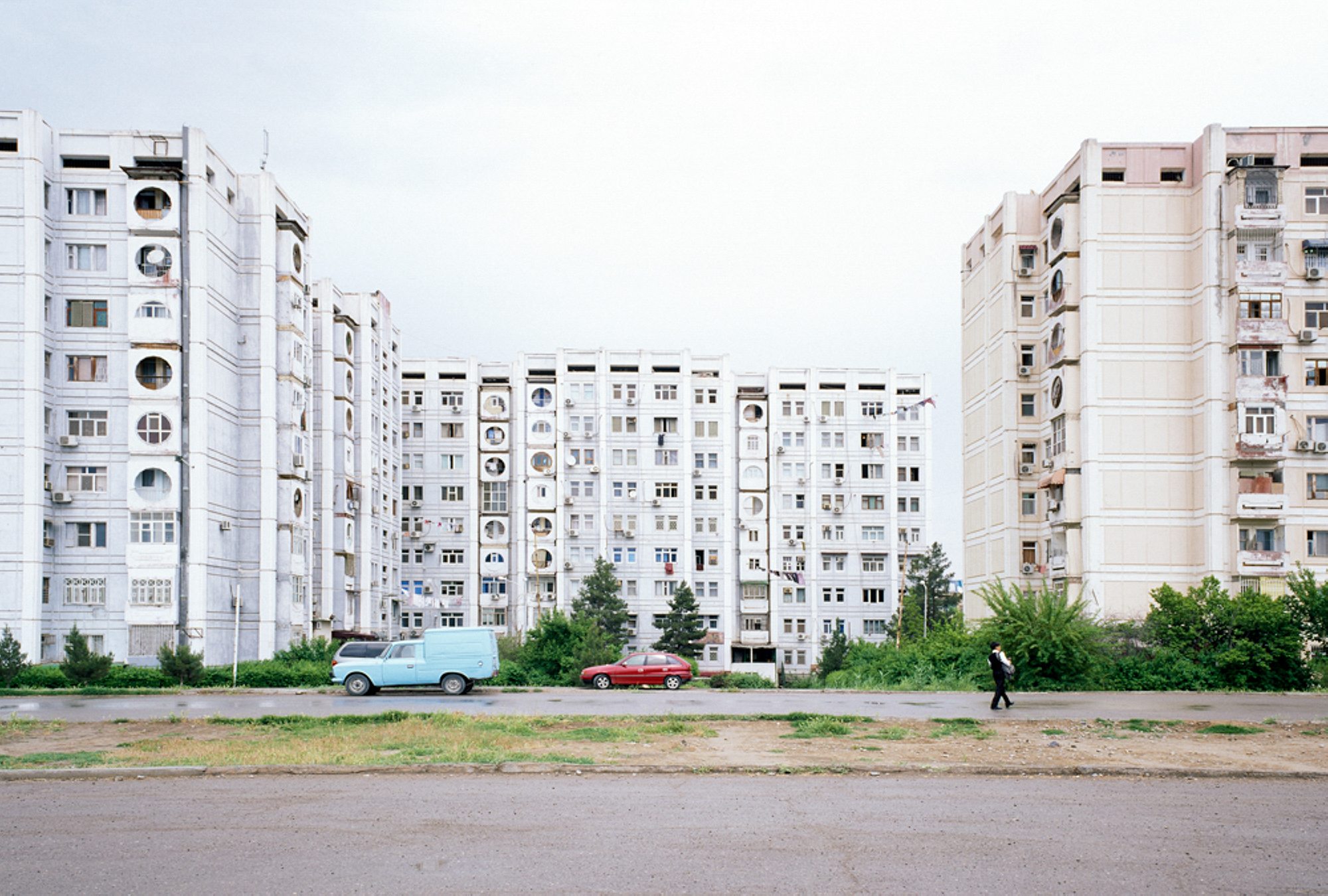
R&K: What does the country actually look like?
Strano: It’s sort of a mix between Moscow and Dubai. You have the Soviet architecture, the big statues, the empty avenues and the empty squares, but they also copy the very modern buildings of Dubai. It’s a strange place. They are in the Guinness Book of Records for things that are completely improbable: the highest flag in the world, the biggest indoor wheel, very weird stuff. The former president, Saparmurat Niyazov, was famous for his caprices. For example, he changed the names of the days of the week and of months. You couldn’t say April or Monday, you had to use the names of people in his family. He had a statue built of him that was always looking at the sun. So the statue turned with the sun. There is one photographer, Nicolas Righetti, who won a World Press Award with his photos from Turkmenistan. He focused on the imagery, statues and portraits. That’s not what I wanted to do. It’s definitely one way to show the dictatorship, but what really fascinated me were the people.
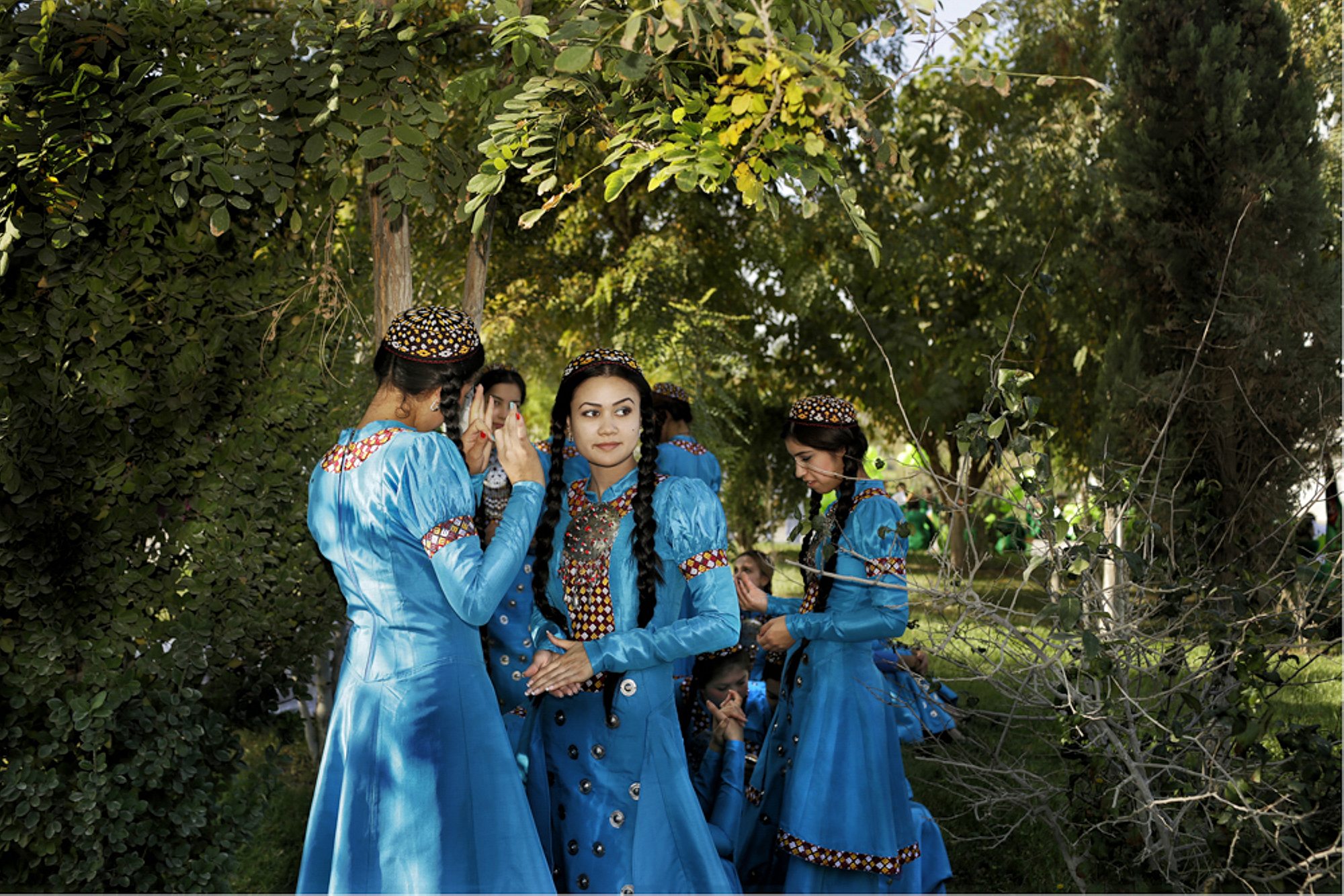
R&K: And you had the chance of having a very personal connection with the people you met there.
Strano: Absolutely. In the beginning I spent most of my time with Turkmens. When I came back I started meeting more foreigners, and they would introduce me to their friends as the only French person who comes to Turkmenistan because she likes it. I wasn’t paid very well compared to them. But yes, I did get close to people. I made friends. I was often invited to their homes, which is pretty rare for foreigners. I had students who took me around the country. We traveled together on weekends. You can’t create these opportunities yourself there, you need to be close to people.

R&K: So this job really helped you get access as a photographer.
Strano: Yes. I have always mixed the two together. In Turkmenistan, photography is more or less forbidden, especially photojournalism, so I had removed everything from my Facebook, but really if you Google me the first results you’ll get say that I’m a photojournalist. So I guess the authorities didn’t think to do that. Or maybe they knew, but they saw that I wasn’t trying to expose military secrets or whatever, so they let me do my thing. I would often have people come up to me or follow me, which is apparently the case for all foreigners. I was told that the government taps our phones and keeps an eye on us. Sometimes, I would take my camera out and someone would come and talk to me directly in French. But they just dropped it after a while.
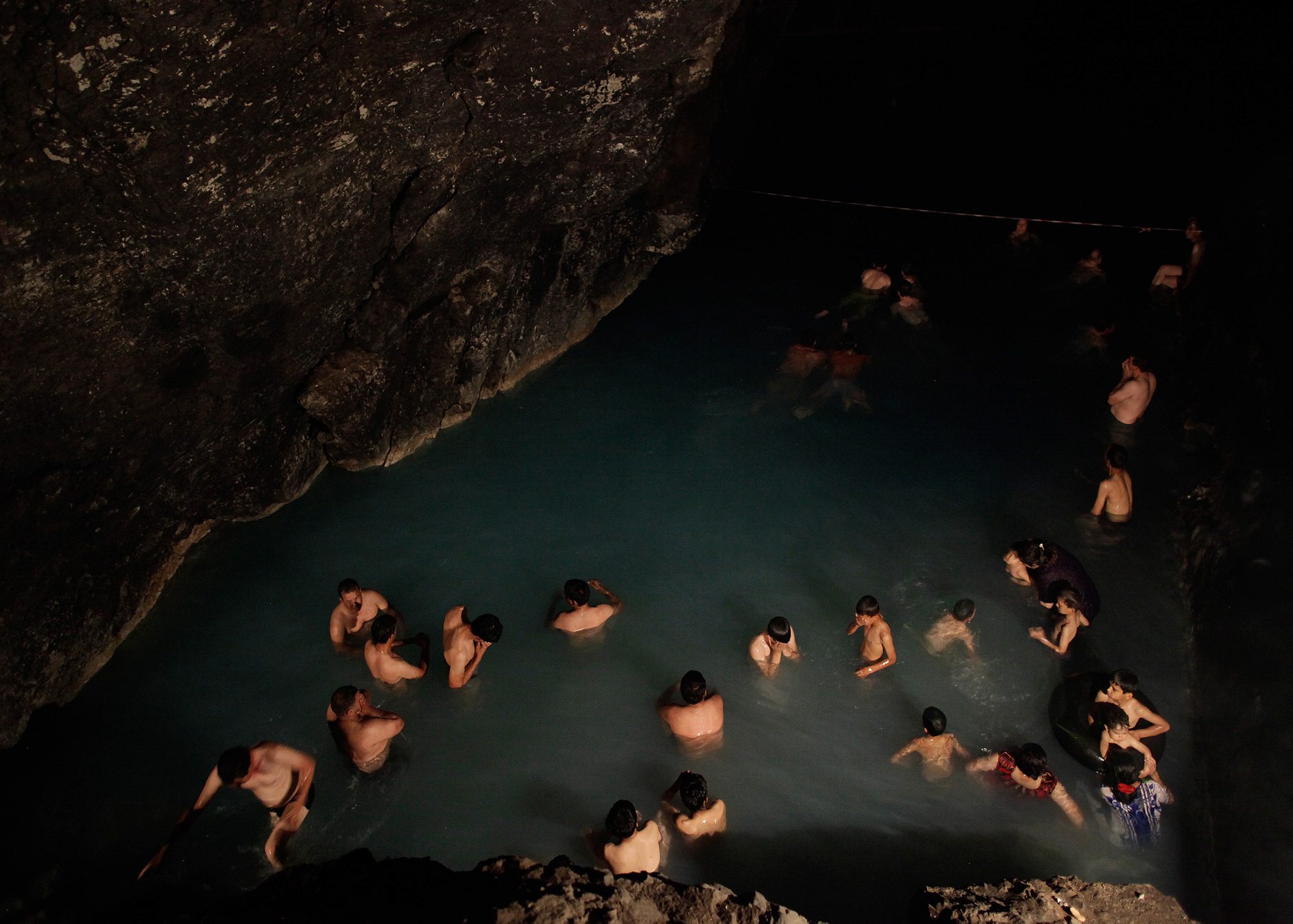
R&K: And being a woman, you were able to get away with more.
Strano: The thing to know about male foreigners is that relationships with Turkmen women are forbidden. So you are definitely observed more if you’re a guy. I did meet some couples though, and what they would do is they would take trips out of the country in order to see each other. Apart from that, they had no physical contact. It’s impossible for a Turkmen woman to go to a foreign man’s house and vice versa. Sometimes we would have drinks in bars and a male friend would decide to move the party to his apartment, and all the Turkmen women would disappear. It was just too dangerous for them. The police can show up any time. The security services still operate there. So yes, being a woman was easier for that. In fact, they even encouraged me to find a Turkmen husband. That would have made them happy.
People never really know what they can and can’t do anymore
R&K: At what point did you decide this work would become a longterm photo project?
Strano: As soon as I realized there were hardly any images coming out of this country. I had not really thought about it before, but this lack of transparency was really interesting to me. At first, I wasn’t very confident about taking photographs there. But the more I stayed, the more I felt comfortable. I went back twice for eight and 10 months because I didn’t have enough images. The question I always asked myself was: what will I show? I wanted to have some sort of focus, but I also realized that no one knows anything about Turkmenistan, so it became a project about these daily life scenes.
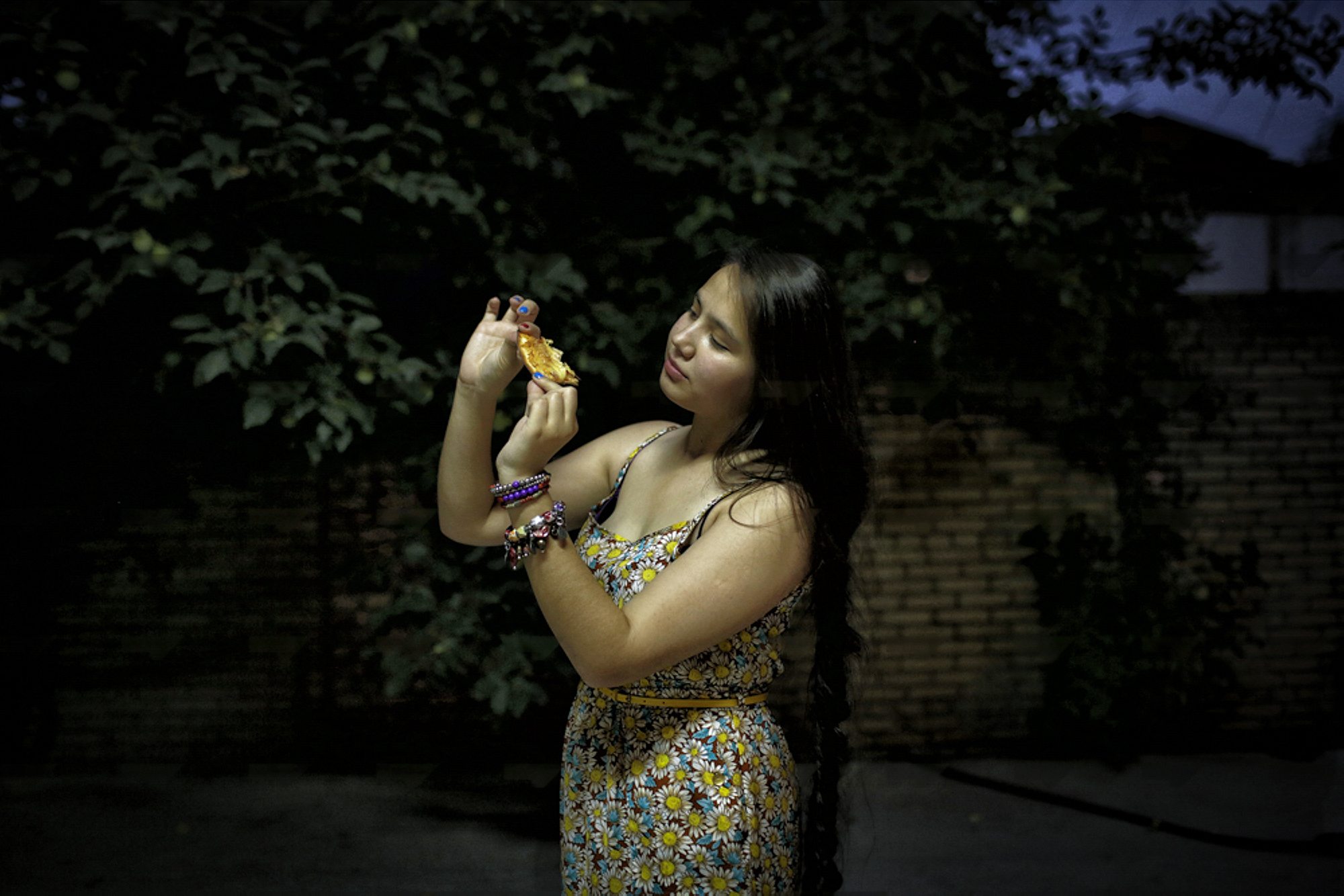
R&K: How did your opinion of Turkmenistan change throughout your trips there?
Strano: It took some time to realize what life was really like for people there. As I started making close friends, I understood how depressing it could be. It’s a very corrupt country, everything is a struggle, from going to the doctor to getting a passport. Laws change all the time. At one point, Russian bi-nationals had to choose between their two nationalities. I have a friend who has the two passports. If she leaves the country, she’ll have to give one up when she comes back, so she just doesn’t leave. And actually she used to travel a lot, she worked in Egypt and in other places. There are many paradoxes in Turkmenistan. It’s a closed country, but a lot of students have studied abroad. I was told that that’s changing though. It seems to me that they change laws all the time just so people never really know what they can and can’t do anymore.
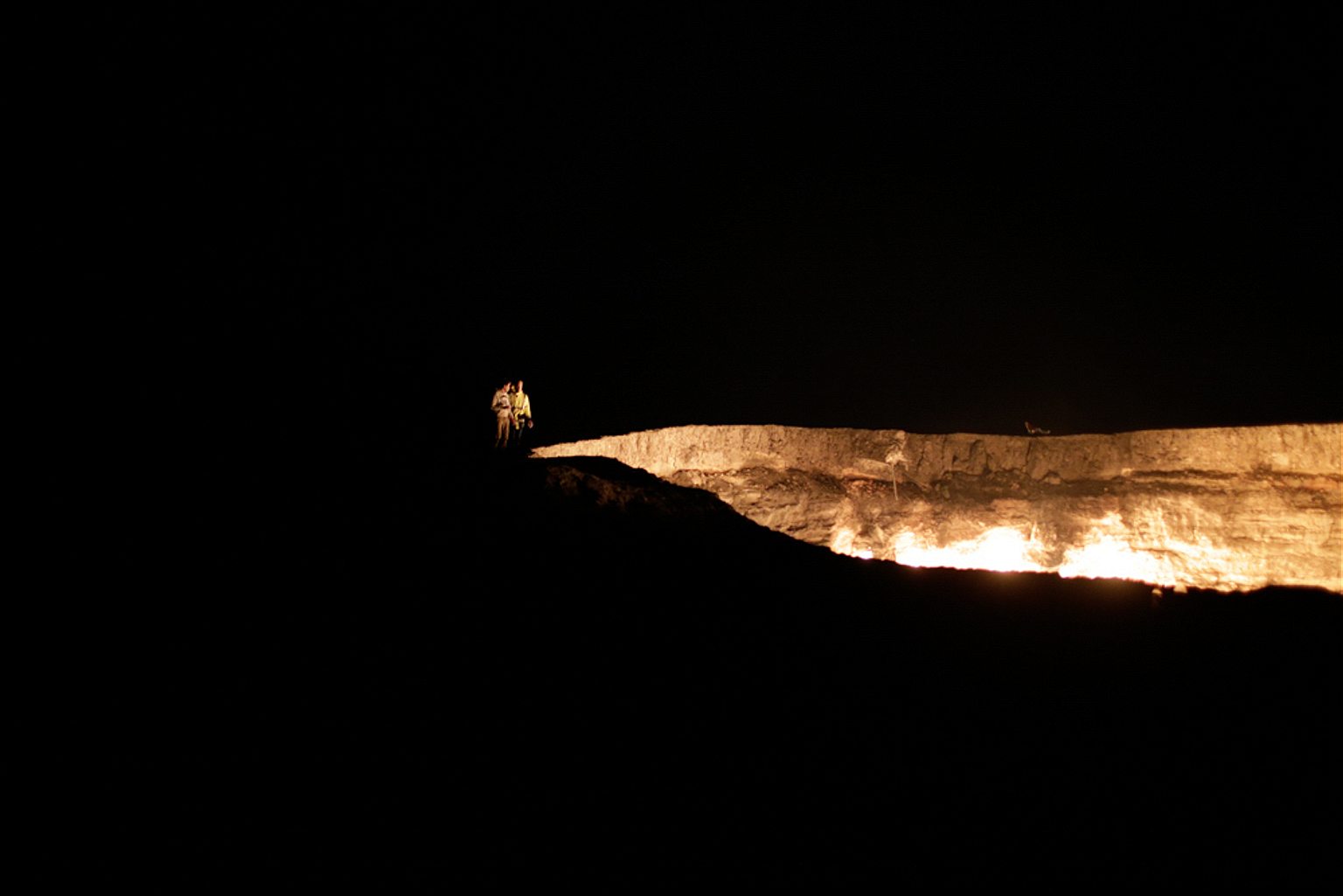
R&K: How was it for you personally to live and work in such an opaque environment?
Strano: I felt privileged because I had the ability to leave and my friends didn’t. Every time I left, I wasn’t sure I would be back and I would feel guilty. It’s not easy for them. You know, the country is very rich because there’s a lot of oil, but ordinary people don’t see that money at all. People don’t have the quality of life they should have in a country like this. Having said that, that has changed a little since the Arab revolutions. The Turkmen government got scared that the same thing might happen there, so they distributed some oil money to people. But it’s nothing like these Arab countries. Turkmenistan is a large country with few people. When you walk in Ashgabat, the capital, there might be a few cars but you could be completely alone on these huge boulevards.
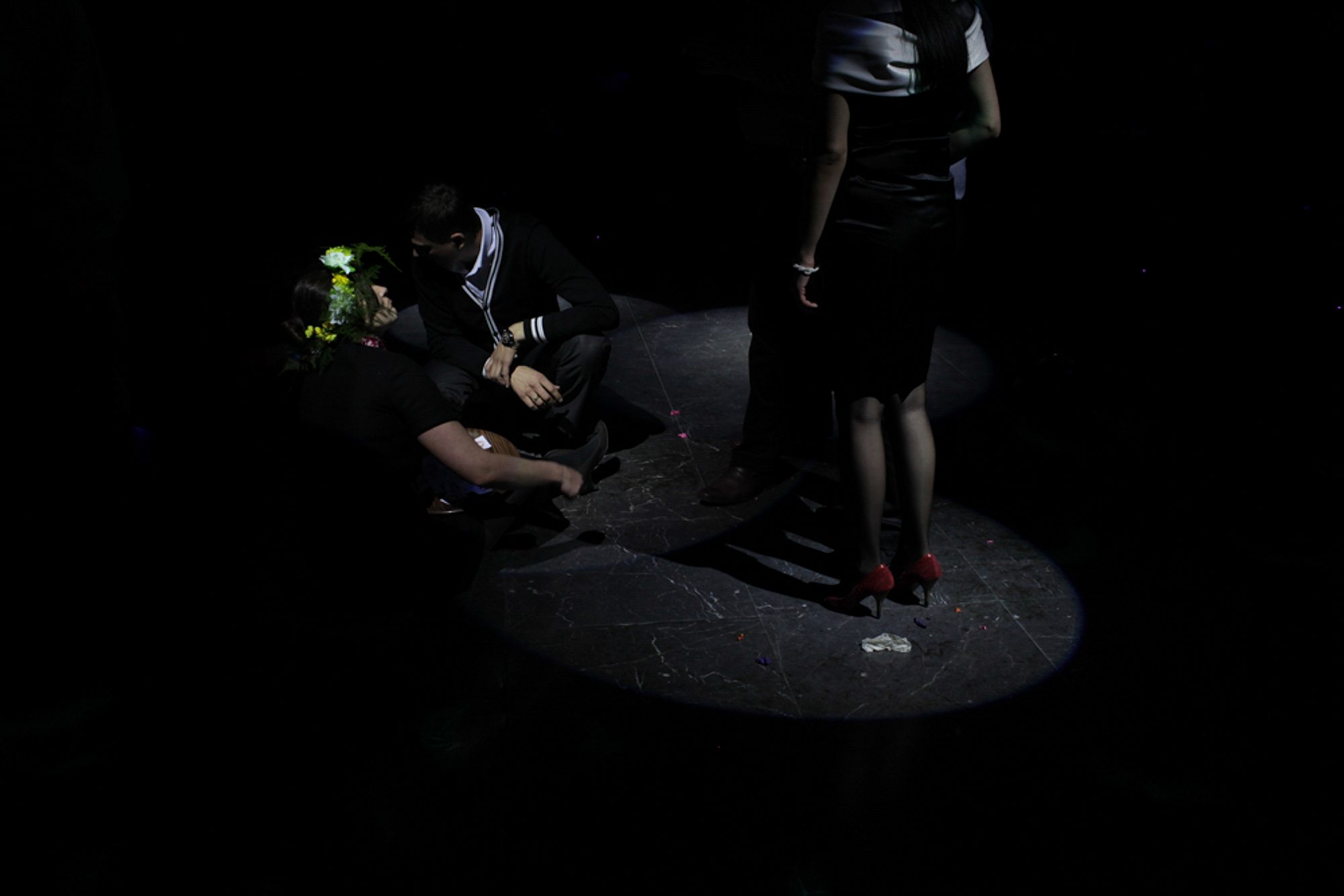
R&K: That emptiness is very present in your photographs. Did you have specific themes you worked with?
Strano: No, I really just wanted to capture the paintings of every day life. Moments of freedom, moments where people take a break. Repression is not an easy thing to photograph or to explain. It’s a feeling. That’s how I wanted to create my images, with this feeling that there’s something behind the photograph, something a bit darker than what you might be seeing. And also to show that life goes on. There is a lot of creativity and expression in the little things of life: singing, dancing, cooking. But it’s always hidden. It takes place in homes, in kitchens. That’s where you might hear people criticizing the regime.
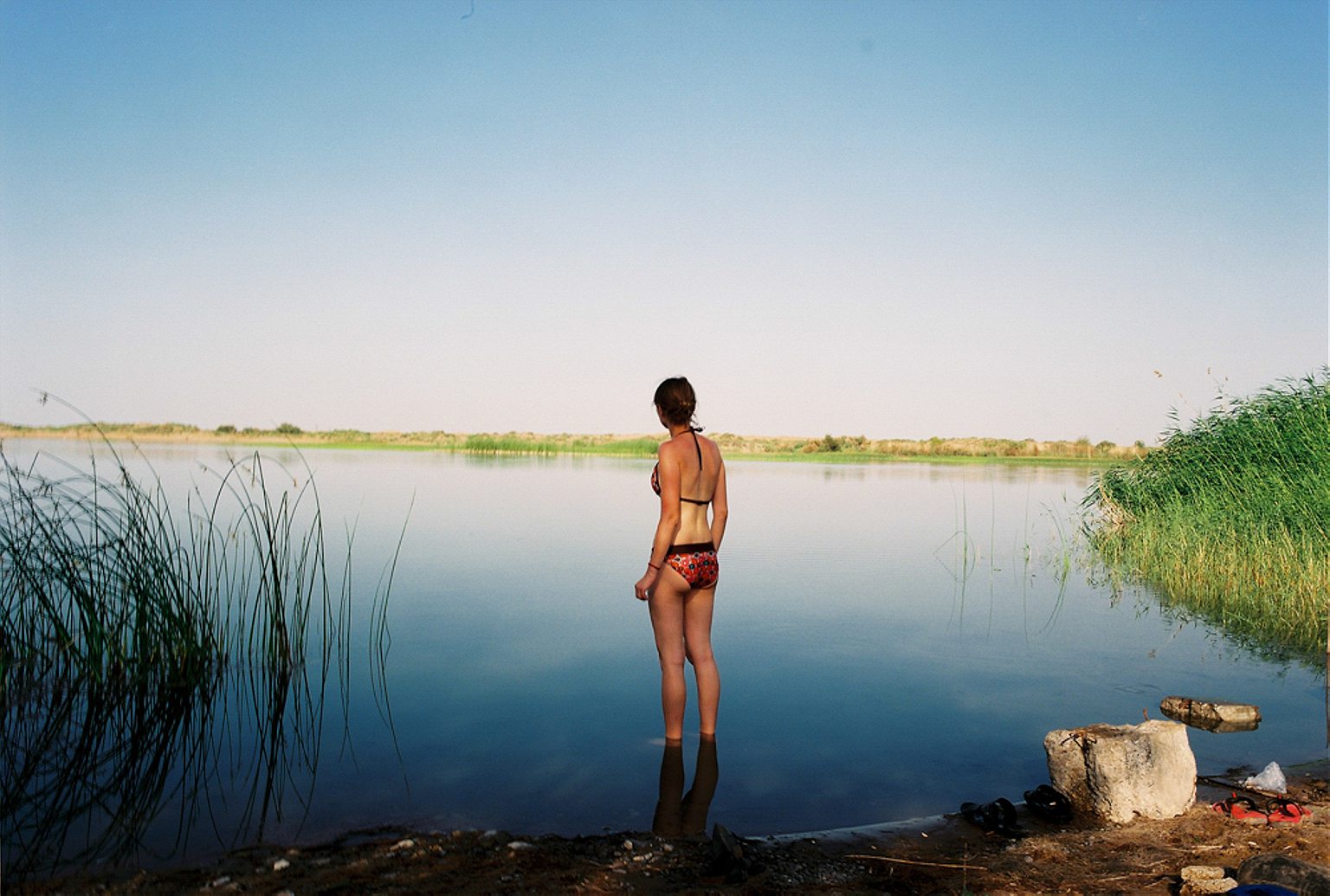
R&K: Did you ever feel like people were scared to talk to you or to be photographed?
Strano: There are people who, no matter how many questions you ask, will tell you that everything is great and that they love their country. And there are others who criticize it from beginning to end. You almost don’t have an in-between, it’s two separate worlds. Younger generations tend to be the ones who are less scared. But I did see people crack, scenes in the street where people start screaming, they can’t take the pressure anymore. And I don’t know how these scenes ended.
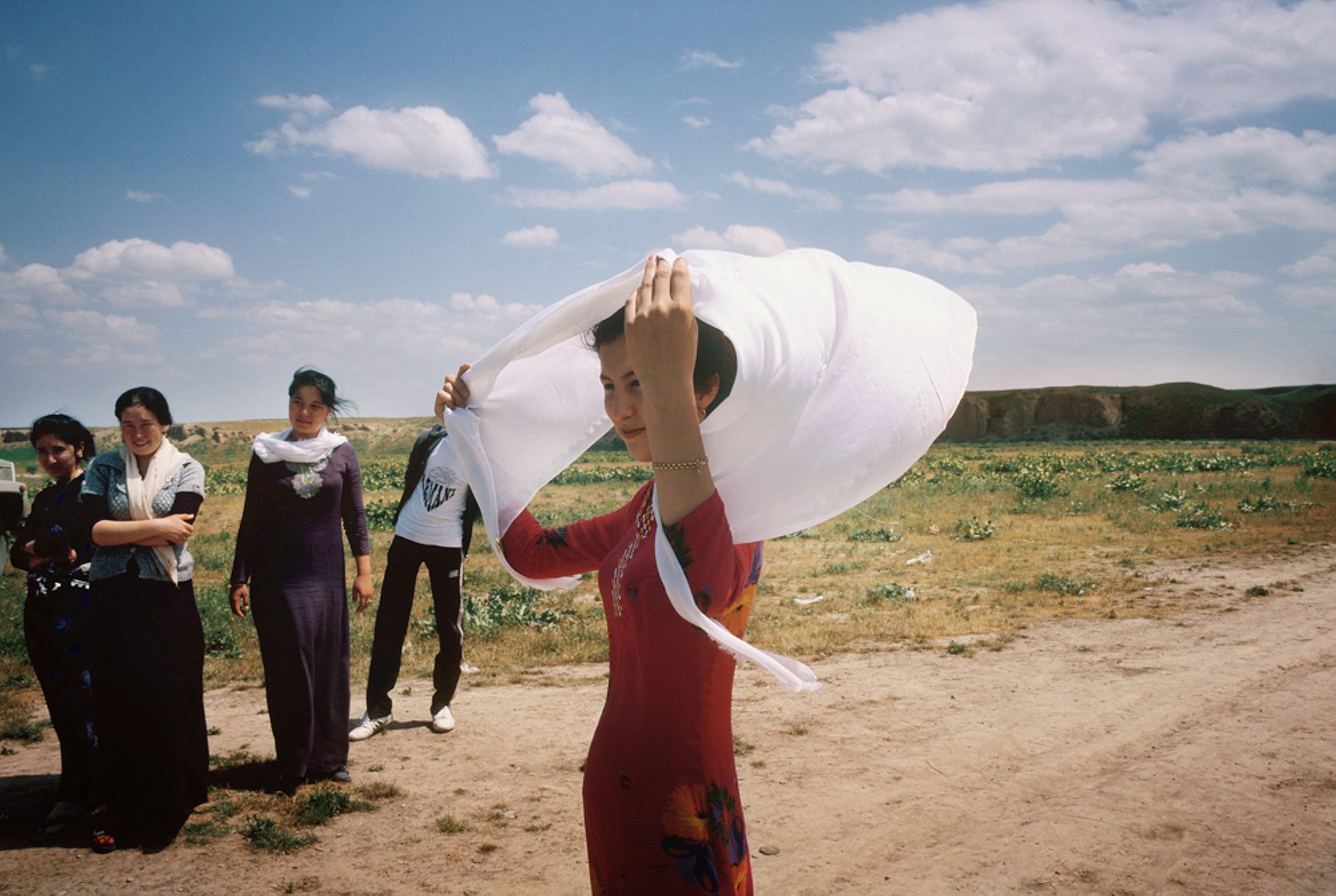
R&K: What is the role of religion in this society?
Strano: Turkmenistan is a Muslim country, so you have mosques and certain rules to follow according to that. But there are also Orthodox and Catholic communities, and it’s pretty open because many Turkmens change religions. Marriage is a real institution though. I have friends who live abroad and don’t like going home because all they’re asked is why they aren’t married and why they don’t have children. They marry young there, and some of these marriages are arranged.
R&K: Were you able to travel throughout the region?
Strano: This was my first experience in a post-Soviet country and I really fell in love. After that I went to Belarus, Ukraine and Moldova, and I’m working on a multimedia project about these places. All these countries have their own personalities. The one that has the most obvious USSR nostalgia is Belarus, because they kept everything since those times. In Moldova, people are very engaged, they talk politics in the streets, they vote about taking down the statues, etc. That wouldn’t be possible in Belarus and Turkmenistan for example. Each republic is different, and my current project is about the people who spent 25 years living in the USSR and 25 years under the new regime.
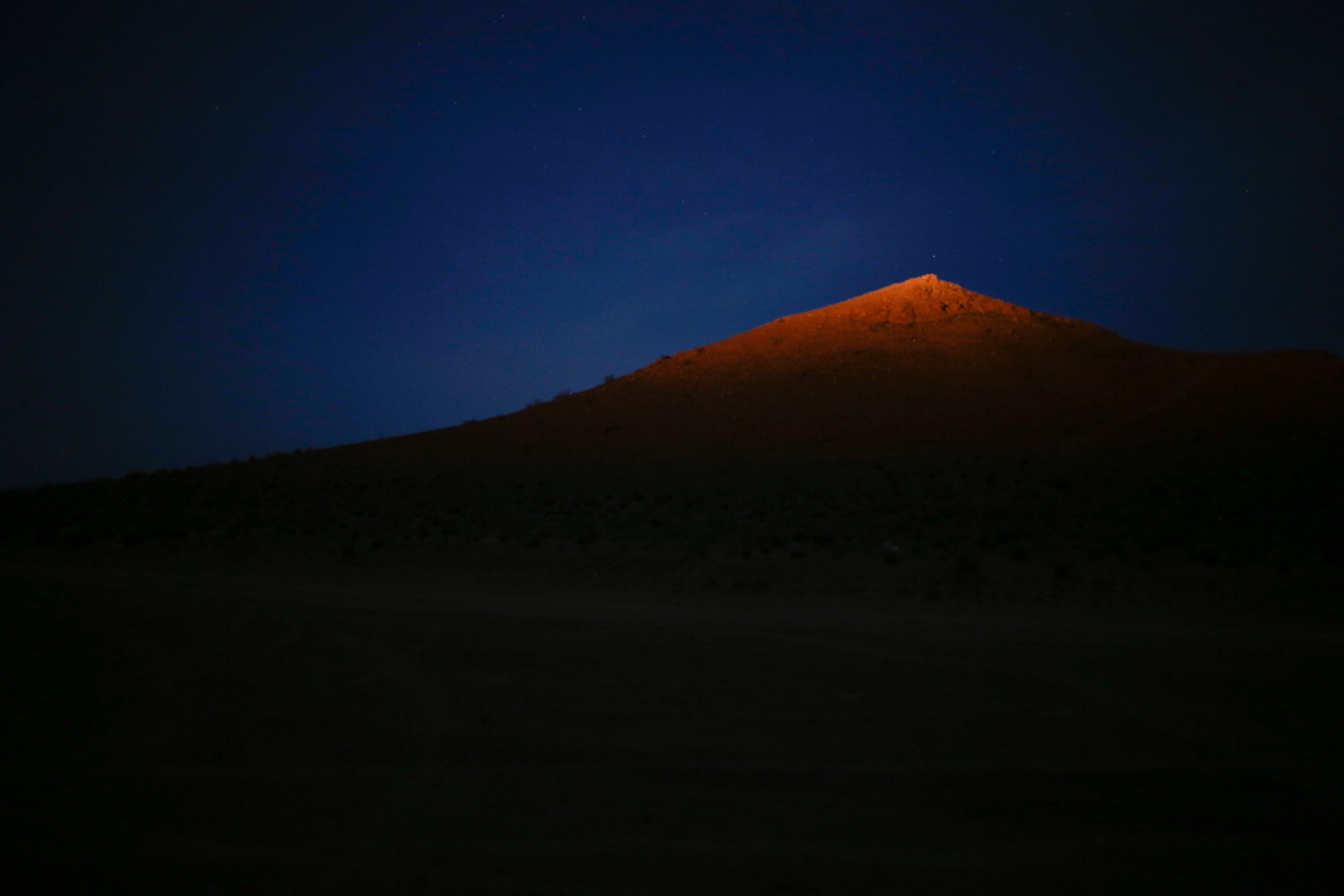
R&K: Does that mean you’re finished with the Turkmenistan project?
Strano: Yes. I would like to make a book because it’s three years of work and I would like people to see these photos.
R&K: What would you want them to take away from this book?
Strano: That there is beauty. You can’t summarize the country by saying it’s a dictatorship. It’s much more than that. People there are fascinating. They are very patient, they have a great sense of humor. I wanted to enter the intimacy of life there too. So I would like my work to be a sort of initiation to the country, a discovery.